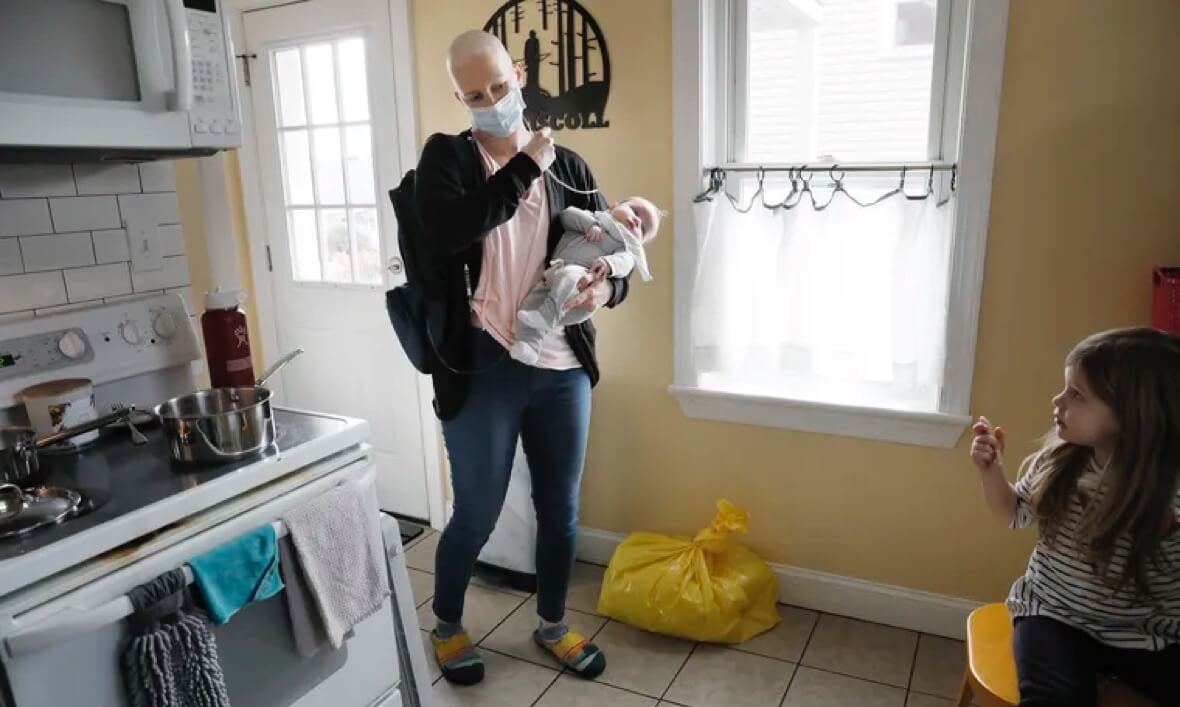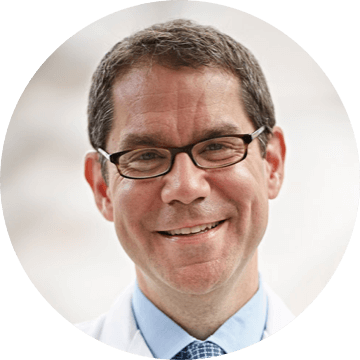In August 2018, 36-year-old Lindsay Roberts’ life was full, happy and "normal."
Lindsay and her fiancé, Ben, were parents to a healthy 18-month-old daughter, Simone, with whom they had just returned home from a family trip to Europe. Lindsay was enjoying planning her fall wedding to Ben and refurbishing their new 150-year-old Germantown home, all the while preparing to return to the work she loved — being a preschool teacher.
Their lives became even happier when Lindsay learned she was pregnant with their second child, but everything changed a few weeks later when she suffered a seizure and was found unconscious in her car. After being rushed to a nearby hospital and enduring weeks of agonizing unknowns, a scan revealed Lindsay had an oligodendroglioma tumor: a slow-growing type of brain cancer that required extensive treatment.
Brain tumors are complex-as is undergoing cancer treatment while pregnant. Fortunately, Lindsay sought care at Penn’s Abramson Cancer Center, where she met with world-renowned neurosurgeon Donald M. O’Rourke, MD.
"From the moment I came to Penn, Dr. O’Rouke helped me gain control and feel safe," Lindsay recalls. "He said to me, ‘I’m going to get you through this. We can keep your baby safe and get you well. It’s going to be a tough few years, but we’ll be there the whole way.’"
And Dr. O’Rourke — as well as Lindsay’s entire care team — was indeed with her and her family throughout their entire ordeal.
"What got us through was that the team paid so much attention to me," Lindsay says. "I felt like they were my doctors, from the beginning. I just felt incredibly comfortable and confident with them."
"Dr. O’Rouke said to me, ‘I’m going to get you through this. We can keep your baby safe and get you well.’"

A New Plan
Dr. O’Rourke, along with medical oncologist Arati S. Desai, MD, radiation oncologist Robert A. Lustig, MD, and specialists in Maternal Fetal Medicine, worked together to devise a plan that would see Lindsay through a healthy pregnancy and then surgically remove her tumor, following up with six weeks of radiation and eight rounds of chemotherapy.
"The Maternal Fetal Medicine team’s phenomenal care helped me begin to relish my pregnancy and envision my family’s future in a way I hadn’t been able to before," Lindsay says. "My fears of cancer were still there — for sure — but the way we were cared for made a big difference."
In 2019, Lindsay, Ben and Simone welcomed Isaac "Ziggy" Johnson to the family. Under the watchful care of OB/GYN Adi Hirshberg, MD, Ziggy came into the world healthy and strong. Lindsay’s care team allowed as much time as possible for her to take in these beautiful early moments as a mother of two — to have an opportunity to breastfeed, to be present with her family. Six weeks after Ziggy’s arrival, Dr. O’Rourke and his team performed brain surgery on Lindsay. Dr. O’Rourke opted for an awake craniotomy (during which the patient is in a twilight state of consciousness) to remove the tumor while being careful to preserve Lindsay’s speech.
"And while that surgery was the first step of fighting my illness, I am indebted to Dr. O’Rourke and his team, and to Drs. Desai and Lustig, for making me feel like my cancer was not the end of my world," she says. "I love being a preschool teacher, so imagining a world where I might not be able to communicate in the same way was terrifying. My team made sure I didn’t have to miss out on any of those precious moments."
Carrying Hope Forward
After healing from her surgery, Lindsay began radiation with Dr. Lustig and chemotherapy under the guidance of Dr. Desai, who had been with her and her family through every stage of her cancer from her initial diagnosis to this critical stage of treatment.
"Every time we met with Dr. Desai, it was a breath of fresh air," Lindsey says. "She figured out how to make my chemo easier, because what was so important was to return to some semblance of normalcy. I had a newborn, a toddler, a fiancé and all my preschool students. I love my life and what I do. I didn’t want this cancer to stop me. So, thanks to Dr. Desai, I worked through my pregnancy, I worked through radiation, through chemo and through the pandemic."
Today, Lindsay’s cancer is in remission, and she is settling into her new life.
"Looking back throughout this incredibly difficult journey, I always felt hopeful. I held so much hope and positivity because of my doctors and Penn Medicine. I’m carrying that hope forward — it’s coming with me wherever I go, no matter what."









